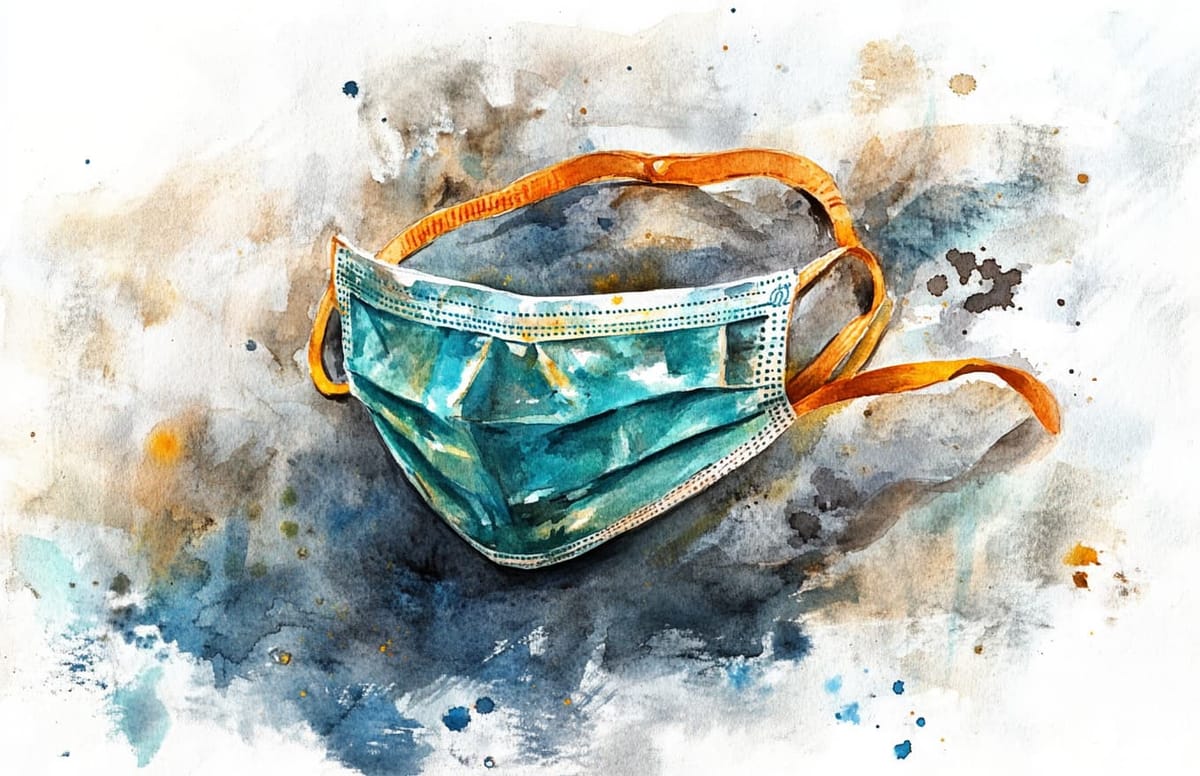Reflecting on the Nitty Gritty of Pandemic Parenting
Was there anything good or was it only bad and ugly?

Yesterday was my son’s 11th birthday. In 2020, this was exactly one week after the World Health Organization declared Covid-19 a global pandemic.
Back in 2020, our schools had just shut down. In theory, it was only supposed to be a few weeks but I had a feeling it would be otherwise. We had to cancel my son’s birthday plans and try to make him feel special with what we could at home.
On the day of his birthday, only a few days into remote learning, his teacher sent an early morning email encouraging the class to wish my son a happy birthday. She wrote, “I’m sure, somehow, he’ll hear us in his heart.”
I cried, thinking of everything my son was missing on his birthday. I knew that it paled in comparison to what other people were facing, and I’m sure some of my tears were due to general fears of the unknown.
It was the first of many, many tears I would shed over the course of the pandemic.
The early days
Our state (Illinois) shut down in response to the pandemic. Schools closed, businesses closed, only essential services were still operating.
A few days into lockdown, my husband said to me, “We survived Day 6” and I replied, “That was only Day 4.” Time very quickly seemed to lose its meaning.
I read something from Italy, which had been in full lockdown for 87 days. And I remember thinking, “It’ll be ok — even if it’s 87 days, we can make it.” After a few weeks, it became clear that we were in it for the long haul — though I really didn’t know how long. Little did I know we would be home for 361 days (March 13, 2020 — March 9, 2021).
I didn’t know it at the time but our lives changed on Friday, March 13th, 2020. There was a Before and an After. We’re not the same people, even three years later.
Remote learning
School was very rough. From March 13, 2020 onward, all three of my kids were home full-time. Our district already had school-issued Chromebooks but the teachers had to pivot hard to figure out how to deliver everything electronically. They only met with their teachers via Zoom for a few hours per week and the rest of the time they were on their own.
It was instantly hard. My 8-year-old hated it. My 10-year-old stopped doing homework. In the Beforetimes, both of them had really liked school. But with minimal supervision during the day (since my husband and I were both working), they were easily distracted.
Then there was my toddler — a kid who could neither self-entertain nor be left alone. I devised a schedule where my husband and I would trade off watching her. I was condensing a normal eight-hour workday into four hours. It was a lot of pressure. Bare minimum at work became the norm.
Remote learning continued the following Fall. I sectioned off part of our living room to be “the classroom.” We put the kids’ desks there, thinking they could be more focused in a dedicated space. My kids still hated it.
I’d get emails during the day that they forgot to show up for music class via Zoom. I had printed charts and timers that went off and they’d still forget. And with work, it wasn’t possible to sit by their sides all day.
Feeling the impacts
Like a lot of people, early in the pandemic I had Grand Plans for being really productive. We did online zoo tours and scavenger hunts in the backyard. I had all kinds of ideas for keeping my kids entertained — especially that first summer when we had no childcare and no school.
But the kids were quickly bored and I ran out of energy. I was doing all of the “planning” by myself; it was not my husband’s wheelhouse.
I really became worried about my older son’s mental health. He was always behind in schoolwork. I remember one night when he locked himself in the bathroom sobbing, saying “You expect too much from me.”
And we were. We expected these kids to self-manage during the day in a way that adults often can’t manage.
I began to resent my job. I’d been at a fintech company for 15 years and was part of a three-person executive team. The CEO only had grown children and seemed oblivious to what parents were going through.
In July of 2020, he wondered why things weren’t “back to normal” yet. I replied that if any of our clients were parents, software was probably the last thing on their minds.
I couldn’t put the company’s needs before mine and my family’s. And in reality, the job had caused me stress for a long time. But before the pandemic, it was something I could tolerate.
The lowest points
I felt like a failure as a parent.
I felt like I wasn’t doing enough to help my kids. We followed all safety guidance so that meant very infrequent gatherings with other people. I could tell my kids were suffering from lack of social interaction and I didn’t know what to do.
My kids simply hated remote learning. I tried everything — bribes, threats, pleading. I wanted so much to support the teachers and the work they were doing, but I’m not a teacher. And I had to work during the day.
I cried on the phone to the school principal multiple times. And at one point I sent her something I had written about the pandemic experience and how much I was suffering. To this day I wonder if I should have sent it or not. I wanted her to understand what it was like for working parents — and mothers in particular. But I also know that the school was doing the best it could in a really awful situation. I never heard back from her after I sent it and I felt ashamed — like I was adding to the load she was also carrying.
But I also felt like I was carrying everything. The weight of my entire family was on me. My husband wasn’t the person the teachers called when the kids missed a Zoom — it was me. It was me trying to think up creative ways to keep us occupied. I couldn’t get a break or break down because they needed me to hold everything together.
Time for myself
Because my days were a complete circus between my job and remote learning, I began to wake up early and write. First it was 5:00 a.m. Then it became 4:00 a.m. I treasured that time alone, when the house was silent.
The writing expanded. Suddenly, it was a way out of my job. I could build a portfolio and leave. Changing careers in the middle of the pandemic probably seems like an insane idea, but it felt like a lifeline. I was writing several hours per day, on top of my full-time job and pandemic parenting — all with the hope that I could escape.
In January 2021, I quit. I left the job I’d been at for 15 years and embarked on something completely different: content marketing and journalism. Turns out, I was on the leading edge of a phenomenon that would later be known as The Great Resignation.
I don’t regret changing careers for a minute. My kids get to see me doing work that I enjoy. The pandemic gave me the push I needed (and now I’m a solopreneur).
Looking back
I really did the best I could with the circumstances that were handed to me.
There were some rallying moments, like when the vaccine became available. I cried when my kids got their doses. We talked a lot about how doctors, nurses, and scientists were working so hard to take care of everyone and keep us safe. I hope my kids have a profound respect for science and medicine, as I do.
But my older kids, in particular, realized how callously and selfishly some people were acting — refusing mask mandates or refusing the vaccine. It’s likely formed some of their impressions of society overall.
People say that having women in the workforce is a good thing for society, but many women were forced to leave because they had no childcare options. Parents, like me, who had kids under five years old had to wait and hunker down even longer for the vaccine to become available for our whole family. Much of the world had moved on while we were still in a holding pattern.
We live in a society where parents have to “figure everything out” on their own. And it shouldn’t be that way. This is the next generation we’re trying to raise: a collective responsibility.


